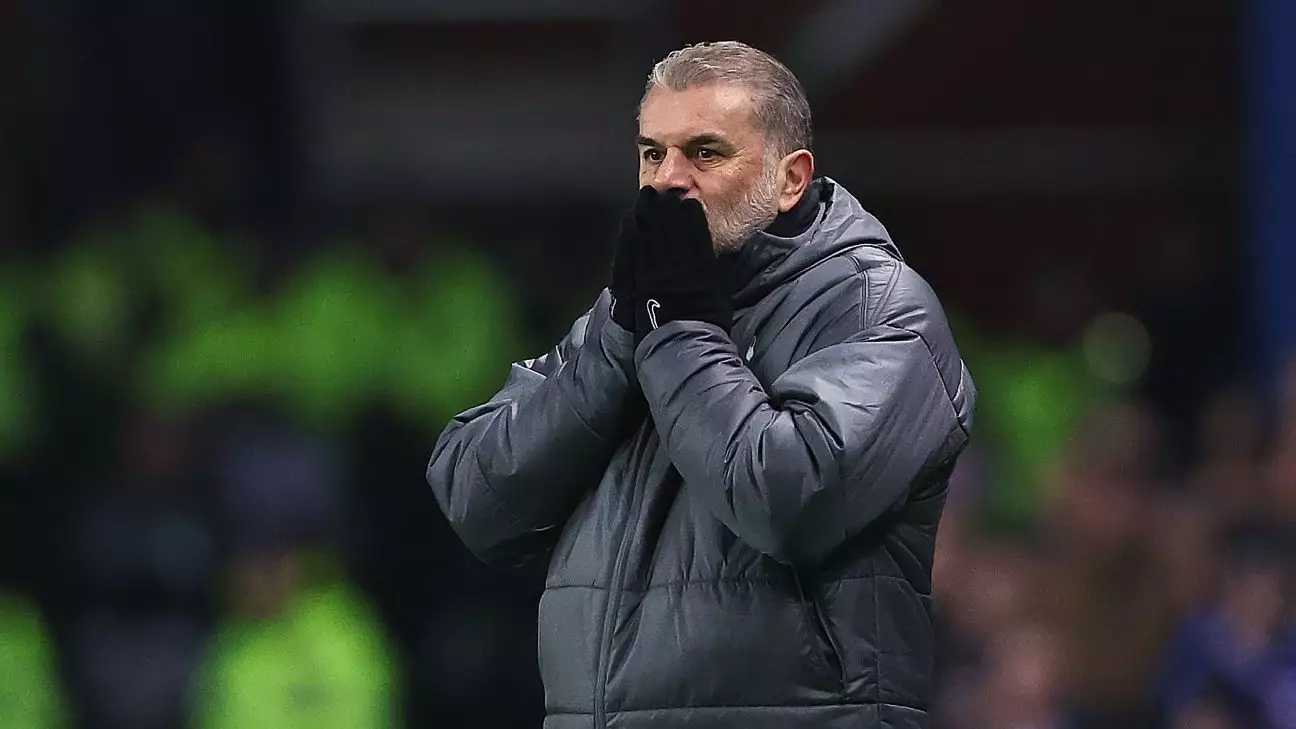Football management stands as one of the most demanding professions in modern society, described aptly by Tottenham Hotspur’s manager, Ange Postecoglou, as “the hardest job in the world.” This assertion raises vital questions about the humane treatment of managers who often bear the brunt of intense scrutiny, pressure, and an increasing disregard for their well-being. Recent sackings of managers such as Russell Martin from Southampton and Gary O’Neil from Wolverhampton Wanderers underscore a troubling trend in the football world where human considerations seem to be overlooked in favor of expediency.
The high-stakes nature of football management is evidenced in the sacking of Russell Martin, who was dismissed shortly after his team’s crushing 5-0 defeat to Spurs. This scenario plays out repeatedly in the football world, where managers prepare for each match with the weight of expectations on their shoulders, only to face immediate consequences when results do not align with organizational ambitions. The sequence of events surrounding Martin’s dismissal, including his determination to fight for his position in post-match interviews, sheds light on the often ruthless landscape of managerial roles. It demonstrates that while a manager might exude confidence and ambition, the reality is that their professional livelihoods can hinge precariously on fleeting performances.
Postecoglou’s critique of the lack of respect and humanity in the managerial dismissal process speaks volumes about the state of football today. He poignantly addresses how both society and the sport have fostered an environment where life-changing decisions regarding a manager’s career are made in swift, often heartless ways. Football clubs appear all too willing to view managers as mere commodities, discarding them at the first sign of trouble while glossing over their contributions and sacrifices.
This desperate need for quick results intersects with a broader societal change where respect for individuals in high-pressure jobs is dwindling. Postecoglou reflects on how managers are often treated with a lack of dignity, an observation that dives into the cultural psyche surrounding football. The mentality that “it’s just business” can lead to a dehumanization of those involved in the sport. It creates an atmosphere where empathy seems to vanish as clubs scramble to find the next successful figurehead. The question arises: Is the relentless pursuit of victory worth sacrificing the human element that binds the sport together?
Moreover, Postecoglou’s assertion that the role of a football manager may be tougher than that of a Prime Minister invites further consideration. While political leaders face electoral cycles, the continuous pressure of performance-related assessments can feel more acute for football managers. Each match acts as a referendum on their capabilities, often leaving no room for error. The psychological toll is significant, as these leaders endure constant public evaluation and criticism in a way that does not parallel the political realm.
As the football community reflects on these developments, it is crucial to consider a shift towards more humane practices in managerial treatment. Clubs must recognize that the pressure on managers is not merely an occupational hazard; it is a mental health concern that should be addressed with compassion. Sustainable practices, such as career support and professional development, are necessary to ensure football management evolves into a role that nurtures rather than dehumanizes.
Postecoglou’s comments serve as a clarion call for reconsideration in how the sport approaches managerial dismissals. Echoing his sentiments could propel meaningful discussions around respect, empathy, and ultimately reshaping the culture that envelops football management. Emphasizing the human element and protecting the dignity of managers may very well lead to improvements not only in managerial stability but also in the overall health of the sport itself.
In the end, as Tottenham prepares to face Manchester United in a crucial EFL Cup match at home, Postecoglou’s reflections ring with greater significance. It reminds us all that leadership, even in football, is profoundly human. Balancing results with respect may just be the critical step needed to safeguard the integrity of both managers and the beautiful game.

Leave a Reply